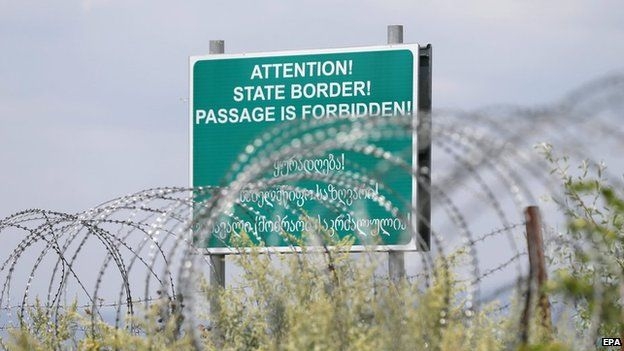BBC Analysis Questions Russian Rationale Behind ABL Actions
A month ago, Russian border guards placed demarcation signposts on the administrative boundary between the breakaway region South Ossetia and Georgia, which left a kilometre-long section of the BP-operated Baku-Supsa oil pipeline within occupied territory.
An academy associate in the Russia and Eurasia Programme at the independent think tank Chatham House, George Mchedlishvili has written analytical pieces for the BBC questioning what was behind Russia’s actions toward Georgia.
He underlines that Russia's actions against its southern neighbor are also a consequence of its current anti-Western stance, which also requires external enemies to secure Putin's high approval ratings at home.
In the introduction of his analytical writing, Mchedlishvili emphasizes that Russia's latest move against Georgia demonstrates that Moscow remains determined to disrupt the pro-Western course of this small South Caucasus state.
The author highlighted that country’s pro-western course and blossoming relations with EU and NATO is irking Russian authorities.
“Political change with economic growth in countries like Ukraine, Georgia or Moldova is seen as a threat to the Russian regime, since success in these countries may motivate the Russian population to question their own governance model,” Mchedlishvili wrote.
In his assessment, Mchedlishvili highlighted that the only option to counter Russia is to call on international assistance. He warns however that the Western reaction has been limited thus far and that media coverage in the West of recent developments at the Administrative Boundary Line (ABL) had been slow and minimal.
“Georgia's loss, therefore, would in essence signify the transfer of the whole region, with its substantial energy transit potential and geopolitical significance, to the Russian sphere of influence,” he warned.
Tamar Svanidze












